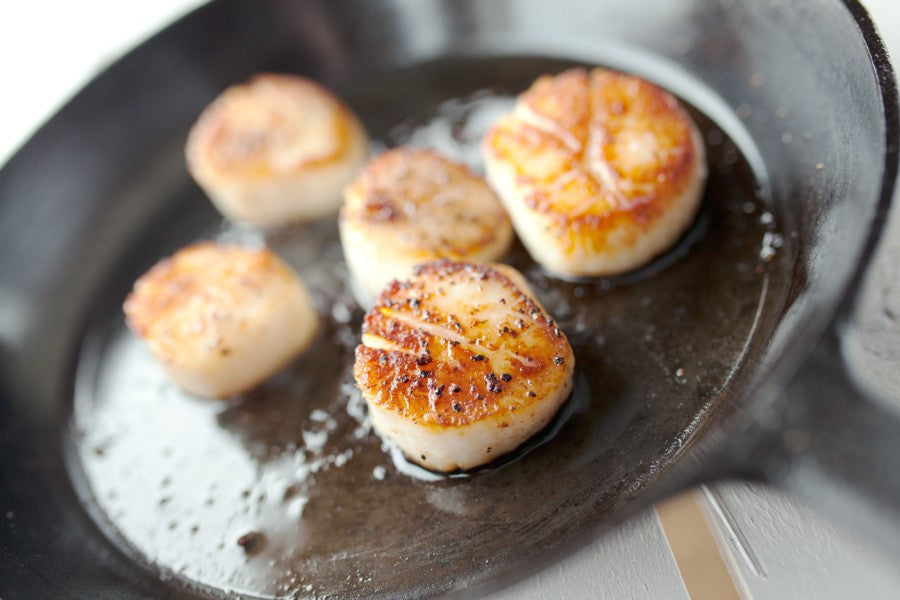
Scallops: Interesting Facts, Health Benefits, and Cooking Tips
Share
Scallops are bivalve mollusks, but unlike other bivalve mollusks such as oysters and mussels, they are not able to completely close their shells. Another ability they possess that other bivalve mollusks do not have is swimming. What they do is clap their shells rapidly, moving a jet of water past the shell hinge. This then propels them forward.
Interestingly, scallops have up to 100 eyes, which, unlike other animals, depend on a concave, parabolic mirror of guanine crystals. These eyes may also be brilliant blue, which respond well to changing patterns of light and motion.
How do you recognise scallops from other bivalve mollusks? Well, scallops have fan-shaped shells, which is what usually comes to mind when ‘sea shell’ is mentioned.
Another interesting fact about them is that their shells are a symbol of St. James, one of Jesus’ apostles. St. James, who was a fisherman before becoming an apostle, is believed to have been buried at Santiago de Compostela in Spain, the way to which is marked by scallop shells.
Moreover, scallops can be found in many different parts of the world. Atlantic sea scallops can be as large as nine inches. Bay scallops, on the other hand, are smaller -- they can grow to about four inches only.
Besides their being interesting creatures, scallops are a delicious and healthy addition to your diet. Their fleshy white meat is mildly sweet, and they are a great source of various nutrients.
They may be able to help you with losing weight because they provide good levels of low-fat protein. A three-ounce serving of steamed scallops, for instance, can give you 18 grams of protein, which comes with only less than a gram of fat and just 94 calories.
Furthermore, a three-ounce serving of scallops can give you:
1.8 micrograms of vitamin B12, which is equivalent to 75% of the amount of the B vitamin adults need every day. You need Vitamin B12 so that your nervous system can function properly. Your body also needs it to form red blood cells. Deficiency of the vitamin can cause you to experience lethargy, lack of appetite, walking problems, and vision problems, among others.
18.4 micrograms of selenium, which is equivalent to 26% of an adult’s recommended daily value of the mineral. Selenium has antioxidant properties, which means that it protects cells from damage.
Other minerals scallops contain include zinc, potassium, and magnesium, which are all essential for optimum health.
Additionally, there are a few tips you can use when buying and cooking them. You would know they are fresh if they have a creamy colour. They are sold as dry scallops when unprocessed. Wet scallops, on the other hand, are very white, which means that they have been treated with phosphates. The process has a very minimal effect on its flavour and texture, though.
Scallops can be cooked in various ways, such as steamed, grilled, or fried. However you want to cook them, remember that you had rather undercook than overcook them. If you wish to grill or fry them, do so at medium heat. This way, they will not dry out and turn out tough. For your next delivery of fresh scallops, click here.
